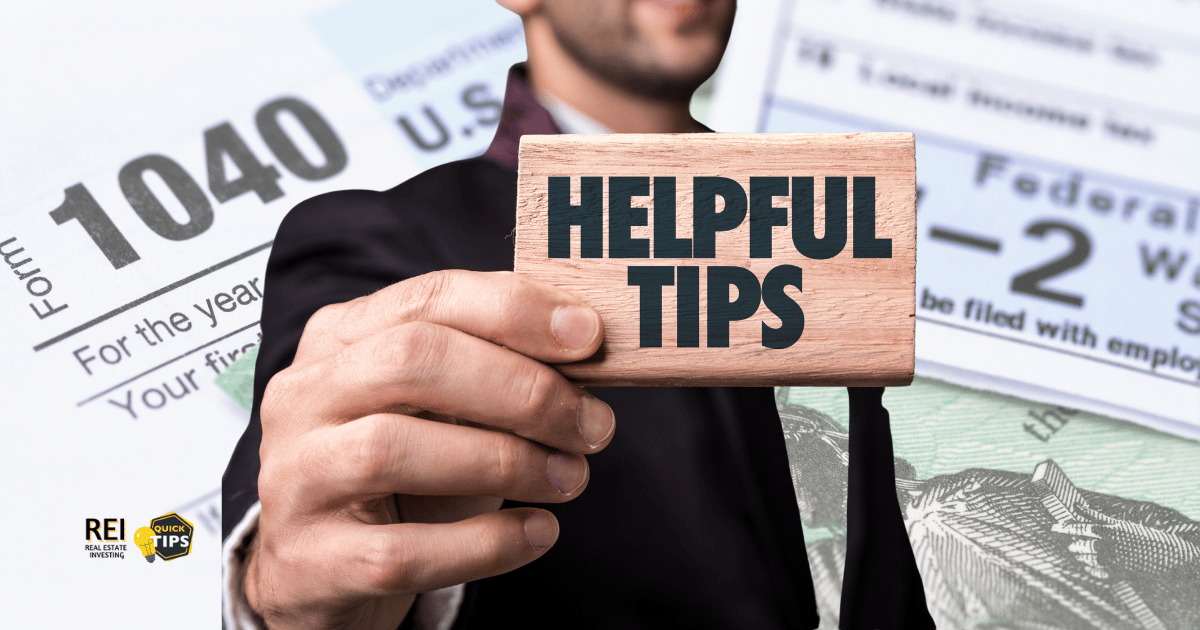
TOP TIP: File an Extension
When it comes to taxes, one piece of advice consistently given by seasoned CPAs is simple, yet powerful: File an extension.
This strategy might not be common knowledge among newer investors, but it's one of the most effective tools in your arsenal. Let’s take a look at why filing an extension on April 15th is such a smart move for real estate investors.
Why File an Extension?
Filing for an extension isn’t about avoiding your taxes or procrastinating; it’s about buying yourself time. The IRS allows you to extend your filing deadline by six months, which takes you all the way to October 15th. Here’s why this works to your advantage:
Time to Get Everything Right Real estate investments often involve multiple transactions, from rental income to property sales, deductions for depreciation, and mortgage interest. That’s a lot to pull together in time for the original April 15th deadline. Filing an extension lets you take your time and ensure every detail is accounted for—saving you from costly mistakes.
Decreased Odds of an Audit Here’s where the strategy really pays off. Filing an extension essentially gives you an extra six months to finalize your tax returns. But more importantly, it also helps reduce your chances of an audit. How? Taxpayers who file closer to the deadline (April 15th) tend to face a slightly higher audit risk. By taking the extra time, you're avoiding the rush that often results in mistakes, which the IRS is more likely to scrutinize.
Avoid Penalties and Interest Filing an extension doesn’t delay your payment due date, so it doesn’t provide an excuse to avoid paying your taxes. However, if you need a bit more time to secure the funds or finalize your returns, an extension ensures that you aren’t rushing to meet the April deadline and risking late fees.
The CPA Perspective
This advice isn’t just a guess—it’s backed by years of professional experience. According to a seasoned CPA who has worked with countless real estate investors, filing an extension is a no-brainer. “It’s not about avoiding your tax obligations,” the CPA explains. “It’s about making sure your tax return is as accurate as possible while reducing the risk of audit.”
Investors should never underestimate the complexity of real estate transactions and their impact on taxes. From 1031 exchanges to depreciation schedules, there’s a lot to account for. Taking that extra time means you can consult with your CPA and ensure you’re making the most of every tax benefit.
The Bottom Line
The truth is, tax season can be stressful, especially for real estate investors who juggle multiple properties and complex deductions. But filing for an extension is a smart strategy that allows you to buy extra time, minimize your audit risk, and file a more accurate return.
If you’re an investor looking to maximize your tax savings, don’t rush your filings. Speak to your CPA, file the extension on April 15th, and give yourself peace of mind all the way until October.
Pro Tip:
As a bonus, if you're a frequent investor or entrepreneur, you may want to keep a relationship with a trusted CPA. The advice and guidance they provide can help steer you away from mistakes and offer valuable insights into other tax strategies that could save you even more money in the future. 📑💡
